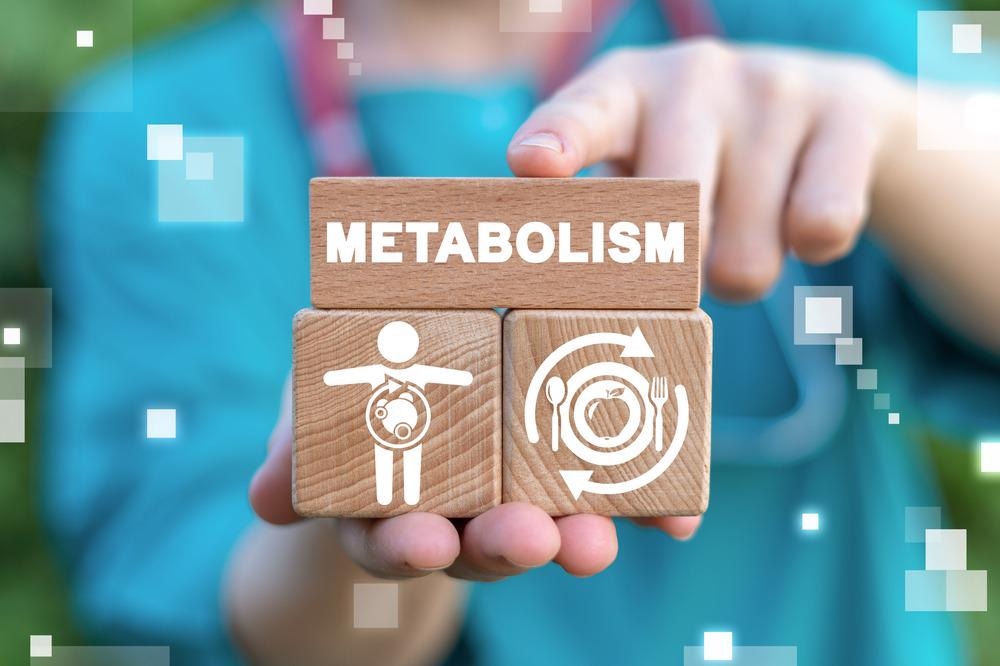Introduction
What is Metabolism?
Metabolic Processes
Nutrition and Metabolism
Digestion
Hormones and Metabolism
Conditions that Can Affect Metabolism
Summing Up
References
Metabolism is a biological process that is essential for life. This article will discuss what metabolism is, providing an overview of the subject and how complex biochemical processes govern the fate of organic molecules over an organism's lifecycle.

Image Credit: Panchenko Vladimir/Shutterstock.com
Metabolism can be defined as the total amount of biochemical reactions in a biological organism that maintain the healthy operation of cells. Furthermore, it provides the energy necessary for biological processes such as growth, reproduction, and maintaining the structure of organisms. Metabolic processes help an organism react to its surrounding environment, and energy derived from metabolism governs digestion and the transport of molecules from cell to cell.
There are two types of metabolic processes. These are anabolism and catabolism. Anabolism is the synthesis of complex molecules from simpler ones in an organism (for example, proteins from amino acids). This process aids in the storage of energy for future use.
Conversely, catabolism is when complex molecules are broken down into simpler ones, releasing energy for use in biological processes. Both pathways are complementary. Additionally, the amphibolic pathway is either anabolic or catabolic, depending on the need for energy or cell availability.
Different metabolic pathways exist in different cells and organs in biological organisms. A metabolic pathway is a linked series of reactions within a cell. In a metabolic pathway, the reactants, intermediates, and products are metabolites. Enzymes catalyze these metabolites, producing different molecules depending on their specific activity. The product of one enzymatic reaction can act as the substrate for subsequent enzymatic reactions in the cell.
Several metabolic pathways include the electron transport chain, oxidative phosphorylation, glycolysis, and fatty acid biosynthesis. The purpose of a metabolic pathway is to provide homeostasis within an organism. Biochemical processes regulate metabolites within the cell according to energy needs and substrate availability.
The main organic molecules present in a biological organism, and therefore the most important to metabolism, are carbohydrates, proteins, and lipids (fats.) Additionally, cells contain large amounts of water, salts, and minerals. Additionally, nucleic acids and other organic residues are essential constituents of cells. Organic molecules consist of carbon, hydrogen, oxygen, phosphorous, and sulfur elements.
Nutrition is essential for metabolism. Proteins are fundamental elements of structural and biochemical molecules such as collagen, insulin, antibodies, enzymes, and hemoglobin. Carbohydrates, which include starches, cellulose, and sugars, are critical energy-containing molecules, and their metabolism is important for energy storage, respiration, and muscle contraction. Lipids are utilized in heat generation, cellular transport, cell signaling, and the synthesis of hormones and organelles.
Diet is a crucial factor for metabolism as it provides the necessary chemicals to maintain healthy functions in cells. Aside from the essential nutrients such as carbohydrates and proteins, metabolic reactions require water, oxygen, minerals, and other inorganic compounds. Amino acids, which make up proteins, are synthesized mainly by the body. Still, a few, such as lysine, phenylalanine, valine, and histidine, cannot be produced by mammals, so they need to be derived from food sources.
Vitamins are essential for synthesizing enzymes and, therefore, the optimal operation of metabolic pathways that they regulate. Vitamins such as niacin and thymine are known as coenzyme vitamins, and their deficiency can lead to serious health problems.

Image Credit: marilyn barbone/Shutterstock.com
Digestion is breaking down complex organic molecules from food into simple, constituent metabolites. For example, proteins are broken down into amino acids, carbohydrates into glucose and fructose, etc.
All living organisms, in general, utilize the same small organic molecules, but large, complex molecules differ between species. Therefore, for an animal to utilize a plant protein or carbohydrate, it must first be broken down in the digestive system.
Hormones regulate metabolic processes. These include insulin, glucagon, epinephrine, and thyroid hormones. Each hormone plays a different role in regulating metabolism and is produced in different body parts. Hormone production is controlled by gene expression.
Insulin is produced in the pancreas and helps regulate the cellular conversion of glucose. Glucagon plays a similar role, preventing blood glucose levels from dropping to dangerously low levels. Epinephrine stimulates the release of glucose in periods of stress. It augments hepatic glucose production. Thyroid hormones modulate cholesterol and carbohydrate metabolism and play a role in suppressing hepatic glucogenesis. Healthy thyroid hormone activity is essential for metabolic processes involved in growth.
A perturbation in metabolic processes can lead to adverse health effects in the individual. Diabetes is a well-known example where blood glucose levels are unregulated due to the underproduction or overproduction of insulin.
Hyperthyroidism, caused by the overproduction of thyroid hormones, can increase metabolism, leading to altered heartbeats, changes in menstrual cycles, weight loss, and sweating. Hypothyroidism disrupts metabolism and can cause sudden weight gain, infertility, and joint pain. Hyper- and hypothyroidism are more common in females. Conditions that affect metabolism require medical treatment and can vary in severity and affect quality of life. Some are lifestyle-related, some are hereditary conditions.
Metabolism is a complex set of biochemical processes that can be affected by diet, lifestyle choices, and hereditary and medical conditions. Understanding the biochemistry of metabolism is integral to designing therapies and treatments for a slew of medical conditions and improving overall nutrition and health.
Continue reading about metabolism here!
Further Reading
Last Updated: May 19, 2022